FAO, INSAI and OIRSA set up roundtable to address phytosanitary emergency Foc R4T in Venezuela
January 29, 2024
author: WWW.SELA.ORG
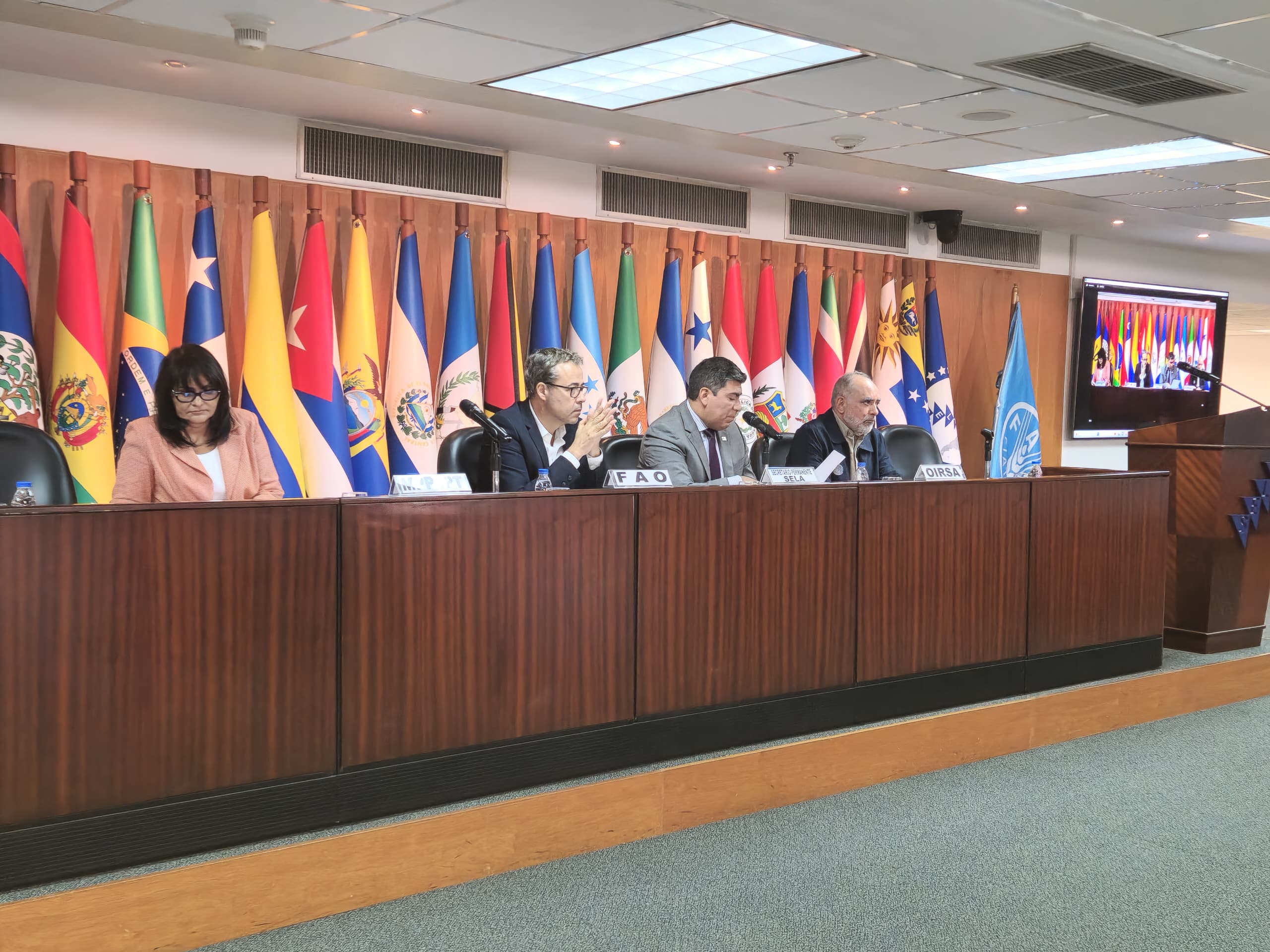
The United Nations Food and Agriculture Organization (FAO), the International Regional Organization for Plant and Animal Health (OIRSA), the International Plant Protection Convention (IPPC) and the National Institute for Integrated Agricultural Health (INSAI), an entity attached to the People's Ministry for Agriculture and Lands of Venezuela (MPPAT) set up a roundtable at the headquarters of the Latin American and Caribbean Economic System (SELA) with international organisations and institutions involved in order to coordinate efforts to address the phytosanitary emergency caused by the fungus "Foc R4T" in Venezuela.
“From SELA, we would like to acknowledge the efforts made by the organisations and institutions present here, through the creation and development of a global proposal to combat this disease,” the Permanent Secretary of SELA, Ambassador Clarems Endara, said during the meeting.
He recalled that “this is a pest that affects the region significantly and that accounts for a large part not only of food security, but also of trade in many of them,” asserting that the “efforts underway” should be an example to be adapted to national and regional contexts. He also called for maintaining these spaces to “turn dialogue into action and achieve best practices for sustainable production and trade,” and pledged to “continue working, together with the membership, for the formulation of policies based on the region's development, as well as the creation of enabling conditions to facilitate the contribution to sustainable development.”
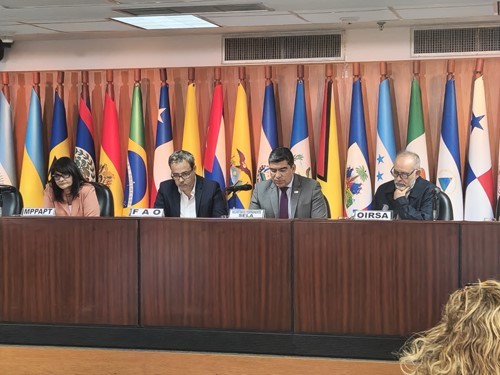
For his part, the FAO Representative in Venezuela, Alexis Bonte, pointed out that the objective of this mission is to update the plan of action established in 2023, and stressed that “it is very important to know what each organisation is doing to achieve the objectives of these alliances.” In addition, he outlined his Agency's initiative to release funds through the TCP (Technical Corporation Projects) system, based on the components: Capacity Building, National Action Plan, Communication Strategy and Pilot Compensation Project; to collaborate in combating this phytosanitary emergency.
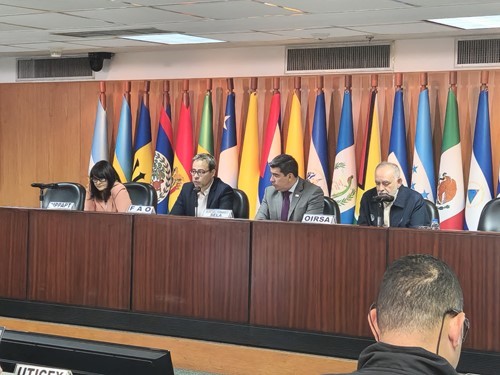
Participants in the meeting included the IPPC Secretary, Osama El-Lissy, who highlighted Venezuela's transparency in providing timely support to his organisation to prevent the spread of Foc R4T and took stock of the progress made in the fight against this disease. He stated that the IPPC remains committed to collaborate with the project promoted by INSAI, FAO and other international organisations and partner institutions.
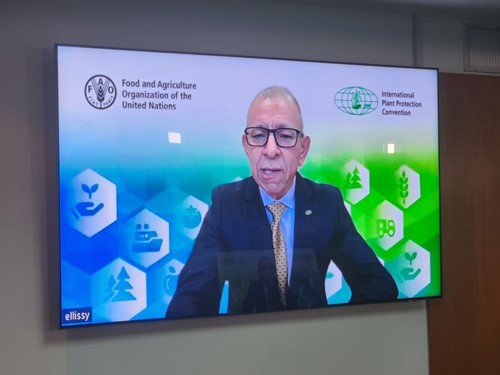
Carlos Urias, Regional Plant Health Director of OIRSA, presented the advances in technology in the region for the anticipation of attention to these emergencies and the work agenda on the subject. He also pointed out that his organisation would have and manage a “rapid test for the detection and identification of Foc R4T” by June 2024.
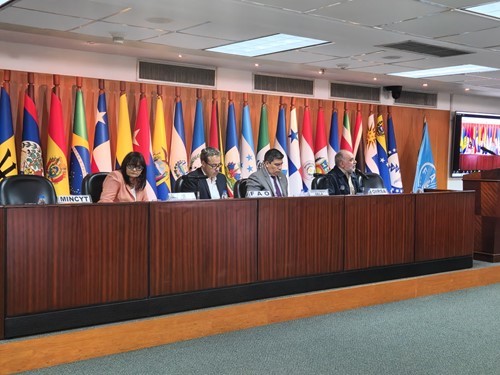
The Venezuelan authorities were represented by the Director General of INSAI, Samalia Suárez, who emphasised the coordination in dealing with the phytosanitary emergency, stressing the importance of communication so as not to “disperse efforts” and to fulfil the objectives of the alliance. “Technological progress for us must be an issue that we must transcend, because it will allow us to have a greater response capacity,” she added.
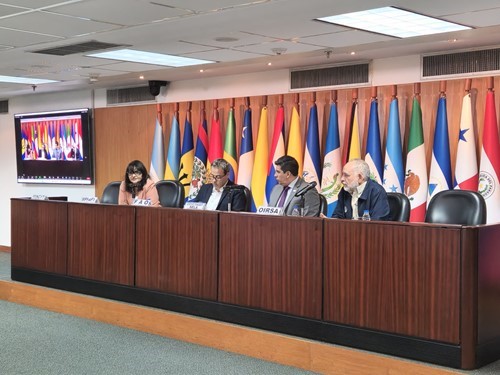
Among the speakers at the meeting was Raixa Llauger, Agriculture Officer of FAO Mesoamerica, who presented the regional actions to address the threat posed by Foc R4T in Latin America and Venezuela. Joan Montilla, Director of Plant Health at INSAI, also spoke about the progress of the Action Plan on the Foc R4T fungus in Venezuela.
The meeting was held at SELA's headquarters in Caracas and was attended by representatives of more than thirty national and international organisations and institutions. The creation of the working group will allow specialised organisations, agencies, and academics to work together to address the emergency in Venezuela and prevent its spread.
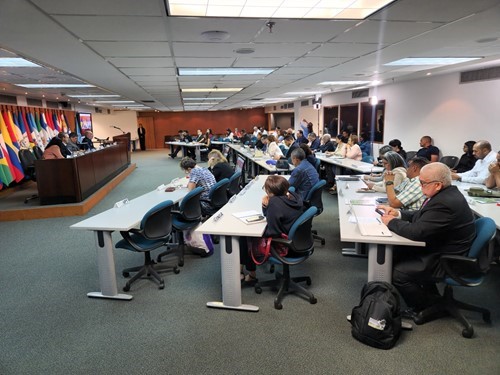
The visit of the “Integral Mission to accompany the Action Plan against Fusarium oxysporum f. sp. cubense Raza 4 Tropical (Foc R4T),” will take place until Saturday 3 February in different Venezuelan locations and aims to conduct training sessions on surveillance and monitoring for technicians and producers and technical assistance in biosecurity, Geographic Information Systems (GIS) and risk analysis.
The vulnerability of food systems in Latin America and the Caribbean is part of SELA's Work Programme, within the framework of the technical support project for cooperation and sustainable development in the region.